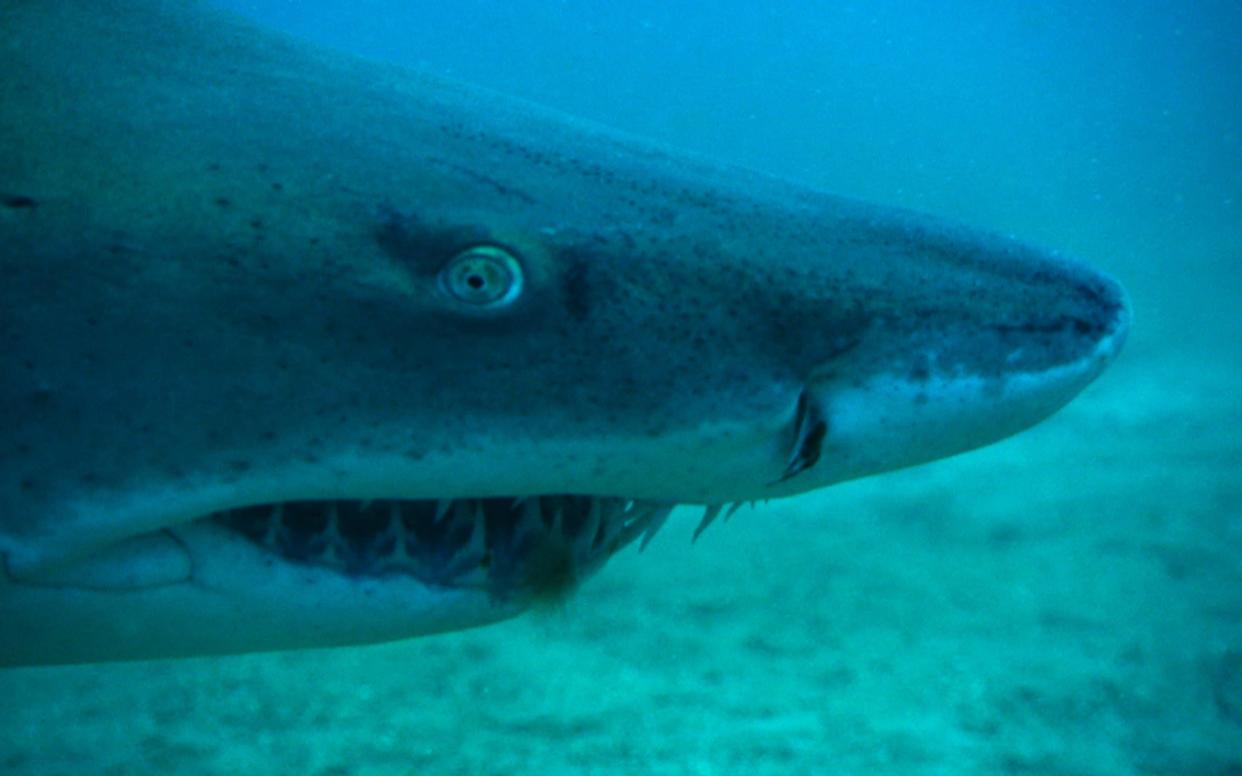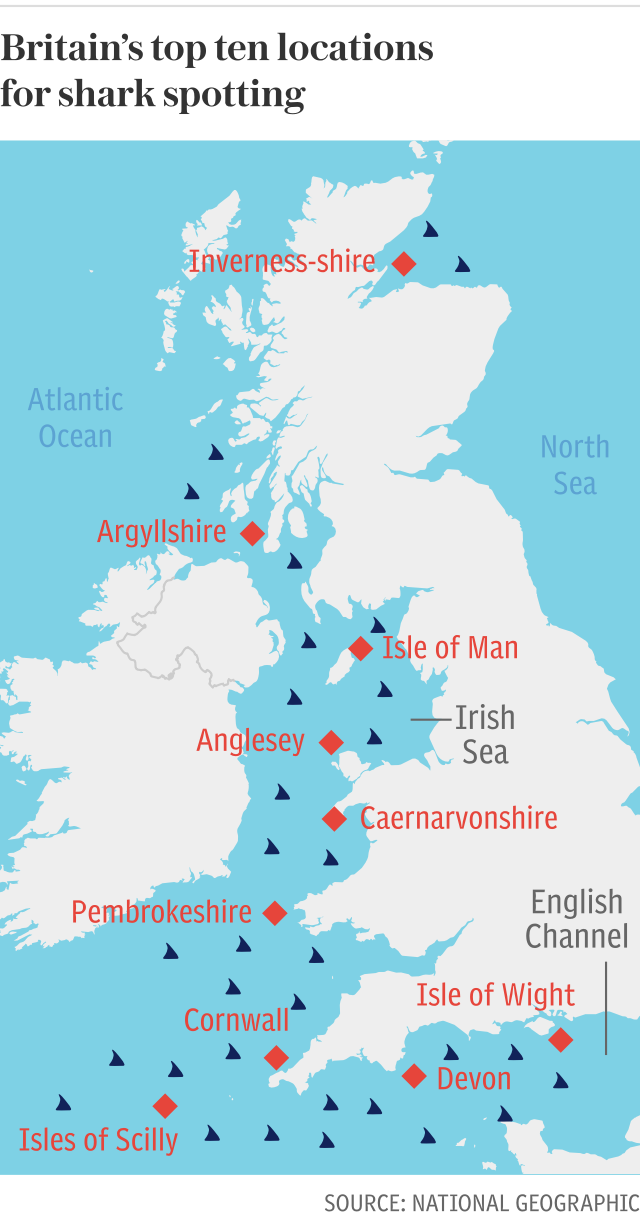Deadly great white sharks and oceanic white-tips to arrive in British waters by 2050

Dangerous sharks including great whites and oceanic white-tips could be swimming off the beaches of Cornwall within the next 30 years, according to experts.
A new study, carried out by Dr Ken Collins, Senior Research Fellow at the University of Southampton and a former member of the UK Shark Tagging Programme, found that rising sea temperatures will encourage exotic predators which have previously avoided our icy shores.
At least ten new species are predicted to become regular visitors to Britain’s waters by 2050, including Black Tips, Sand tigers and Hammerheads, which are currently found in the coasts of Spain and Portugal.
At the end of June, a Great White was sighted near the island of Majorca for the first time in 40 years, and Dr Collins said the horror-film favourite may already be swimming off the coast of Britain.
The warming waters are expected to attract the oceanic white tip which Jacques Cousteau described as ‘the most dangerous of all sharks’ and which has historically been responsible for the most human deaths, often picking off victims of shipwrecks and airplane crashes.

The new study was initially based on sharks in The Pacific which biologists noticed were staying for longer than usual off the coast of Australia.
And after switching his focus to the Mediterranean, Dr Collins said many sharks already migrate thousands of miles to reach Spanish and Portuguese shores, so it would only take a slight change in water temperatures to encourage them further north, and into Britain’s seas.
That’s exactly what you can expect to see: the occasional catches of more and more types of sharks
The English Channel has warmed by around 1C in the last 50 years and is expected to continue to heat up with climate change while a further global sea surface temperature rise of 1.5C is predicted by 2050.
“One of the fish on my list is the Bigeye thresher, which was caught off of Cornwall about 10 years ago,” he said.
“That’s exactly what you can expect to see: the occasional catches of more and more types of sharks.
“There is considerable debate as to whether we have Great White Sharks in UK waters. I see no reason why not – they live in colder waters off South Africa and have a favourite food source, seals along the Cornish coast.”

Cornwall is already a hotspot for sharks, with 20 species already regularly inhabiting the coastal waters. But they can also be found off the coast of Devon, the Isle of Wight, Wales, and even as far north as Invernesshire and Argyllshire
Currently the UK has 40 species occupying its waters, including Thresher, Basking and Nursehound sharks.

Dr Collins found that fish which usually moved further south in the winter are staying put, suggesting that the water is becoming warmer.
“One example in the English Channel is the Grey Atlantic Triggerfish,’ says Dr Collins.
“About twenty years ago we noticed for the first time that it wasn’t going away in the winter anymore but staying all year round and we attributed that to the fact that in the past 50 years the English channel has warmed up to about a degree.
“I confidently predict that we’ll have more different types of sharks but less overall sharks because of fisheries, finning and pollution.”
Other sharks that are expected to reach Britain by 2050 include, the longfin mako, bronze whaler, the silky shark, dusky shark and goblin shark, which already migrate to the Mediterranean coast.
Most the sharks on the list are currently described as vulnerable or endangered.
The research was carried out by Nat Geo WILD ahead of the launch of its new series Sharkfest

 Yahoo News
Yahoo News 
